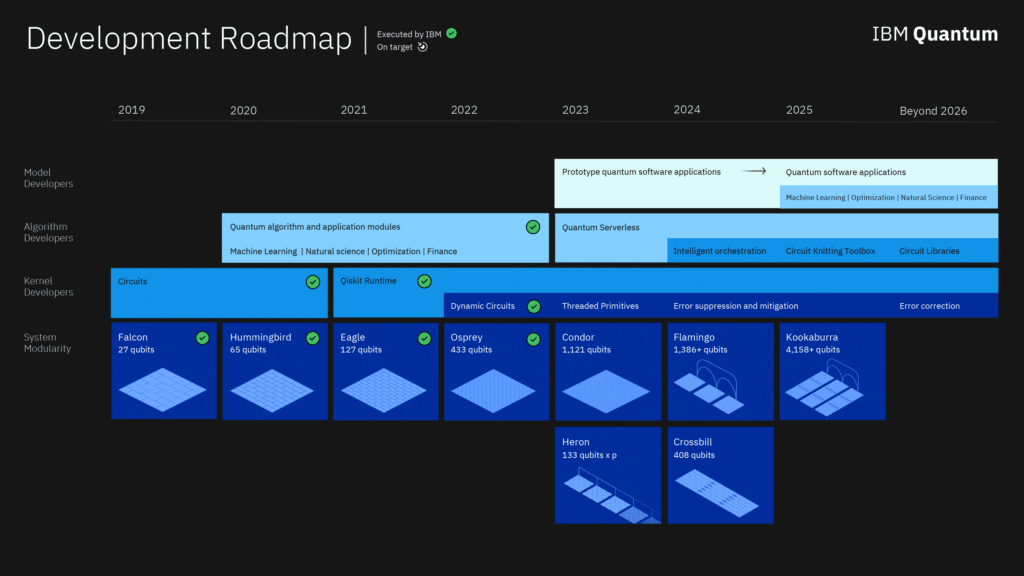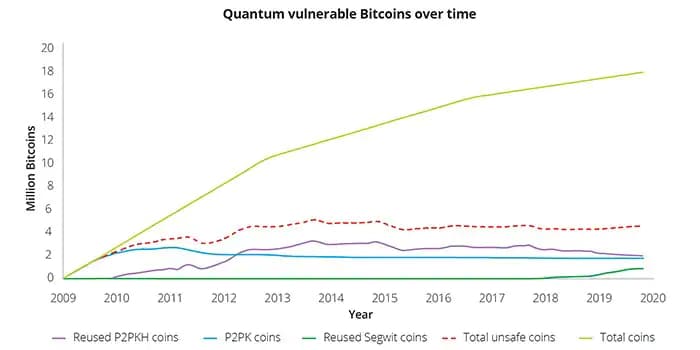Do quantum computers pose a threat to crypto mining?

With the development of quantum computing technology over the last few years, scientists and industry analysts have hypothesized about the possible ramifications it may have on blockchain as a whole and cryptocurrencies in particular.
Quantum computing: the capabilities
The consensus has generally been that a sufficiently powerful quantum computer will have the capacity to easily break the cryptographic keys used to secure cryptocurrencies like bitcoin.
While these cryptographic keys are based on supposedly unsolvable mathematical problems, it is expected that quantum computers will have the computational capacity to solve these problems, thereby rendering consensus algorithms such as proof-of-work (PoW) or proof-of-stake (PoS) useless.
What is quantum computing?
Quantum computing is a technology that exploits the laws of quantum mechanics to solve problems that would otherwise be too complex for classical computers. Quantum computers operate differently from classic computers, whose logic relies on Boolean algebra consisting of only two numbers, one and zero, that respectively represent ‘on’ or ‘off’ states in resistors.
Quantum computers use quantum bits (qubits) instead, which can exist in a state of superposition; since sub-atomic particles can exist in more than one state at a time, this makes it significantly faster to execute complicated tasks using a quantum computer than a classical computer.
Cryptocurrency mining
Cryptocurrency miners are responsible for verifying and adding new transactions to the public shared ledger, thereby keeping the main cryptocurrency chain operational. Once a new block is mined, it is added to the blockchain. The blockchain is based upon a series of mathematical problems forced into existence, and mining involves generating answers to these tasks; once successful, a new block is created.
The security provided by bitcoin is one of the reasons people have been so accepting since blockchains are harder to hack than traditional financial institutions. However, theoretically, if a single entity surpasses 50% of the bitcoin network’s computing power, it can control the transactions on the chain by solving mathematical problems more rapidly than anyone else.
The threat posed by quantum computing to crypto mining
Bitcoin currently employs the SHA-256 coding algorithm introduced by the NSA in 2001 and published by the National Institute of Standards and Technology (NIST). Transactions are assigned unique cryptography keys, revealing all the bitcoin holdings if accessed. In January 2022, Mark Webber, a researcher from the University of Sussex, suggested that IBM’s quantum computer, which had 127 qubits when the research was published, might crack the bitcoin algorithm while conceding that it might also be too small for the task.
Webber’s team postulated that a quantum computer would require at least 317 million qubits to perform the task in an hour. Current quantum computers are still far from the required computational power to threaten bitcoin algorithms. IBM plans to produce quantum computers with more than 4,000 qubits by 2025.

Bitcoin is mined using a special kit called the Application Specific Integration Circuits (ASICs), designed specifically for mining rigs. Additionally, since the circuits employ ‘puzzle friendliness,’ each input is expected to return a good output; if not, it is detected by the entire system, and the miner is notified.
ASICs cannot begin to be tampered with by any computer without concurrent notification to all other miners working on the block. For the bitcoin algorithm to be broken, the hacker entity would need to take over 50%+1 of the blocks’ mining process.
The relationship between the private and public keys generated by a user, and in particular the direction, is also crucial in understanding how quantum computing may constitute a threat. While the public key is easily generated from the private key, the same does not apply to vice versa. A user’s private key ownership can be verified using a signature without revealing it using the elliptic curve signature scheme.
This system can only be cheated by calculating the private key using the public key, a task that is virtually impossible for conventional computers but quite easy for a quantum computer.
In 1999 the mathematician Peter Shor published a theoretical demonstration that a quantum computer can solve the complex problem of finding the prime factors of large numbers exponentially faster than all classical computers. If someone develops a quantum computer with enough error-corrected qubits, they could theoretically use Shor’s algorithm to break the cryptographic schemes used in bitcoin. A study by Deloitte revealed in April 2022 that if such powerful machines existed, around one-quarter of the bitcoin in circulation would be in danger.

The threat is overhyped
The fear around quantum computing arises from the fact that an entity that hypothetically controls more than half of the mining network using quantum computers could use that control for any number of nefarious purposes. On the other hand, Professor Sarma of the University of Maryland suggests that the concept of quantum computing is currently more hype than substance due to the small matter of quantum error correction.
Quantum error correction is the process of compensating for the decoherence—quick disappearance due to environmental noise— of quantum states. Scientists in the 1990s thought it would be a simple challenge to overcome since the laws of physics allow it, but it has proven to be a tall order in practice.
In February 2023, the physicists of Google reached an important milestone by reducing errors demonstrating that error correction is possible. However, today’s most advanced quantum computers still have dozens of noisy physical qubits, and constructing one that could break RSA codes from such components would require millions, if not billions, of qubits. This is because only tens of thousands would be logical qubits and utilized for computation, while the rest would be used for error correction to compensate for the decoherence.
While the quantum computing technology we have now represents a tremendous scientific achievement, we are still far off the computational power that would give quantum computers utility or pose a threat to bitcoin mining.
With only 1.6 million bitcoin left to mine as of May 2023, greater computational power will be required to mine new bitcoin. Finally, despite being very early days for quantum computing, scientists have already started developing post-quantum secure algorithms that are difficult for both classic and quantum computers to solve.
Conclusion
The concept of quantum computers could threaten crypto mining as these machines could solve cryptographic tasks exponentially. However, despite the advances in the field, no one has yet built a working prototype.
Bitcoin mining is currently done using ASICs designed specifically to do cryptographic calculations. However, while these specialized devices have been able to provide a huge computational advantage over CPUs, it is believed that quantum computers may be able to outperform them.
While some experts believe quantum computing could threaten cryptocurrency, others are skeptical about the viability of such technology. Still, the industry invests heavily in developing the necessary hardware and software to exploit quantum computing and other quantum technologies.
What is quantum computing?
Quantum computing is based on the idea of quantum mechanics, which states that particles exist simultaneously at multiple places or states until they are observed. This means that when we observe any particle, we force it into one state instead of allowing it to be in all states. With quantum computers, scientists can use these strange states to do things like search for information really fast – up to 100 million times faster than regular computer processors. A quantum computer would also solve some important mathematical problems that cannot currently be solved using conventional methods.
How does a quantum computer work?
A quantum computer works differently from modern computers; it stores data in “qubits” instead of bits. The qubit has two states simultaneously – one for 1 and one for 0. Measuring a qubit returns either zero or one, depending on which state it was in when you measured it. This means that a single qubit can store all the information needed to run any program ever written by a man.
Do quantum computers exist?
In reality, quantum computers exist, although they are extremely difficult to build and use. However, some researchers believe that quantum computing could be used for tasks such as breaking encryption codes. The only way to create a working quantum computer would involve using photons instead of electrons. This means that building a quantum computer must be done at a subatomic level where we cannot observe any results.
















